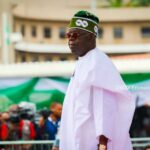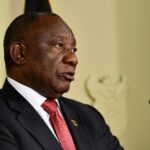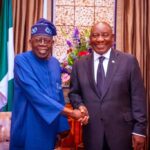The 18th World Congress of Neurosurgery organised by the World Federation of Neurosurgical Societies (WFNS) will begin today (Monday) in Cape Town, South Africa and last until December 2023.
The Programme Chair of the 2023 WFNS, Tony Figaji, in a message, said it was the first time the meeting would be held in Sub-Saharan Africa.
He said new things had been included in the programme this year to promote diversity, inclusivity and representation in all its forms.
He further said, “I relied heavily on working with the chairs of all the WFNS committees and all their corresponding members to develop this programme. So, the almost 500 invited speakers truly reflect the organisation, rather than me or our organising committee. The speakers are a wonderful and diverse mix of giants in neurosurgery and the young generation standing on their shoulders.”
- NIGERIA DAILY: How Malaria Almost Ended My Life- Victim
- UAE to provide humanitarian response stations across Nigeria
He noted that the themes of the meeting ranged from training the next generation, disruptors and cutting-edge innovations in neurosurgery to global initiatives, adding that there were also dedicated sections across all specialties such as diversity in neurosurgery, advocacy and innovation and working with industry.
He further said that the central theme for the meeting was “Ubuntu”, the African philosophy popularised by the late Nobel Peace Prize Laureates, Nelson Mandela and Archbishop Desmond Tutu.
He explained that, “In short, it translates to ‘I am because we are’. It is the idea that our destinies are inextricably linked, that in each other we find our common humanity and purpose. In a world where individuals and groups seem increasingly at odds with each other and pulling in different directions, we remind ourselves that we are bound together, that the collective is more, and that we can do more together than we can apart.”
Also, the President of WFNS, Nelson M Oyesiku, and the 2023 WFNS Congress President, Graham Fieggen, in a joint message, said the society was made up of 132 societies and associations, adding that one of its outstanding contributions was “supporting the growth of neurosurgery in low and middle-income countries, with our profession taking root in countries where there had never before been a neurosurgeon.”
The organisers said the programme would showcase the latest in neurosurgery subspecialties: paediatric, vascular, neurotrauma/neurocritical care, spine and peripheral nerve, functional, oncology, skull base, neuro-endoscopy and brain-machine interfaces.

 Join Daily Trust WhatsApp Community For Quick Access To News and Happenings Around You.
Join Daily Trust WhatsApp Community For Quick Access To News and Happenings Around You.


